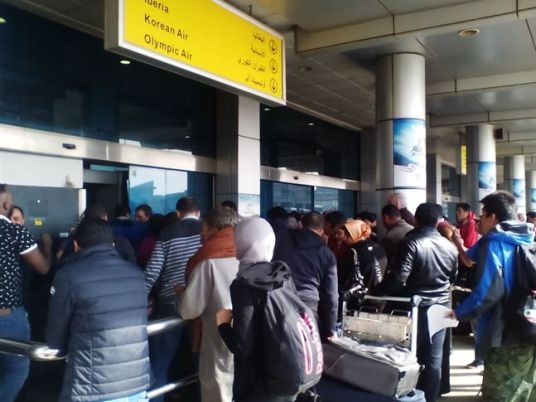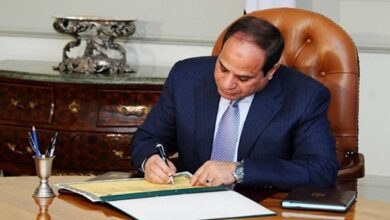
The Egyptian parliament has approved a legal amendment that will raise fees for Egyptians seeking government permission to work abroad.
The amendement will raise the fees for permits issued by the Manpower Ministry, increasing them from LE100 to LE200 for those with a higher-education background, and from LE60 to LE100 for those with a lower level of education. In line with existing practice, Egyptian expats must renew their work-abroad permit each year, meaning the fees are due annually.
According to a report from the Parliamentary Committee on Defense and National Security, the increase is a response to the drop in the value of the Egyptian currency relative to the dollar, and it is intended to help boost public funds. The committee said the proposed increases are “balanced” and would not affect those on low-incomes.
The proposed increase in fees caused a stir recently due to inaccurate media reports claiming the government was planning to raise new taxes on Egyptian expats, with many taking to social media to denounce the plans as unconstitutional.
The situation was worsened when Fayez Abou Khadra, a member of parliament's Manpower Committee, said that imposing taxes on expats is normal and happens in several European countries. “The Egyptian expats must contribute in boosting their country’s economy, especially since they are getting paid a lot. So I hope the government will impose higher taxes on them,” he said.
However, in an official press statement, the Egyptian Cabinet denied the rumours of news of taxes on Egyptian expats, saying the government had no such plans.
The Information and Decision Support Center (IDSC), meanwhile, explained that the proposed increase is simply an amendment to Law No. 231 of 1996, which stipulates the fees to be paid by those seeking work abroad, in accordance with Law No. 173 of 1958.
Amr Al-Mounir, deputy finance minister for tax policies, said that the amendment is not about taxes at all, dismissing such claims as "rumours".
Speaking Al-Nahar satellite channel Al-Mounir said a law was issued many years ago that allowed Egyptian abroad to be taxed, but the law was ruled unconstitutional by a court. He said that due to the court ruling, there is no chance of such taxes being reintroduced.
"We only raised the fees on the work-abroad permission, which must be renewed annually, and it has not been increased for 20 years,” he said.
While some are relieved at rumours of new taxes being scotched, others are still up in arms at the proposed increase in fees.
Saleh Farhoud, head of the Egyptian Expats in Paris group, told Al-Watan newspaper that Egyptians living abroad will not accept the increase. He says the small amount may be affordable, but people reject the idea of their government twisting their arm to raise money.
“Egyptian expats are one of the country's deep pockets, and our remittances have been one of the main reasons for the economy‘s growth over the past years,” Farhoud said.




